Gray skies, black humor
Updated: 2013-12-28 10:36
By Raymond Zhou (China Daily)
|
||||||||
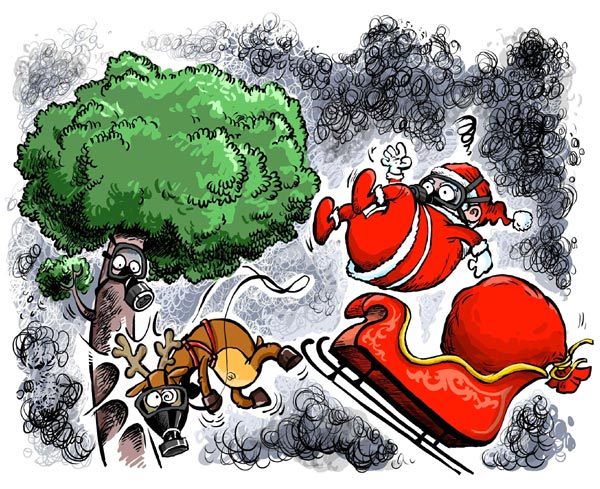 |
|
Pang Li / China Daily |
Heavy smog is bad for your health, but so far it has been good at stimulating a spontaneous revelry in making and partaking in wisecracks, channeling collective anxiety into temporary optimism.
Someone in Beijing says its smog is so dense he cannot see the Chairman Mao portrait at the Tian'anmen Rostrum. Another counters: "You call that dense? I cannot see the Chairman Mao image on my bank note."
Don't accuse me of believing in conspiracy theories, but I have a hunch that manufacturers of facial masks are behind this.
The longest distance in the world is not between life and death, but between you and me when I hold your hand in the street but cannot see your face.
|
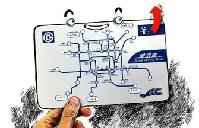 |
|
 |
|
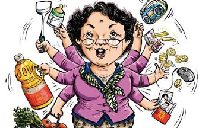 |
These three paragraphs above are a sampling of the jokes that ordinary Chinese have created to make light of the smog that has been plaguing the country for the past few years, especially metropolises like Beijing. When the haze reduces visibility to such a low level, people's urge for gallows humor is tickled so relentlessly that a spigot of creativity is opened, and funny lines pour out and spill over onto the Internet.
If you think about it, the smog is a perfect conduit for a national carnival of such witticisms. Smog is not as instantly fatal as mine blasts or bridge collapses, which, tragic as they are, do not affect a wide swath of society. Nor is it as cathartic as a massive earthquake or other natural disasters, which usually give rise to a collective sense of nobility. It is chronic and widespread, and in a sense everyone is a perpetrator as well as a victim.
Some of the sarcasm comes from helplessness: You cannot relocate all manufacturing with pollution to remote places, and even if you do the pollutants may waft into your city anyway; you can ask others to drive less and use public transport, but when it comes to yourself most people still prefer the convenience of driving; and even if you stay home and cook your kitchen may add to the haze.
When experts said 13 percent of Beijing's PM2.5 originates from the restaurant business, people laughed it off as ludicrous-and then they did some tests. Suffice it to say, nobody can totally exonerate himself.
A funny thing happened when authorities asked the public to give a Chinese name to PM2.5, which is technical jargon for atmospheric particulate matter with diameter of 2.5 micrometers or less. It started as a serious exercise in search of a popular name and candidates such as "fine particles" or "particles that can get into the lung" were floated. Then came a bunch of terms that use homonyms to make fun, such as gong wu yuan, literally meaning "source of public haze" but sounding like "public servant", and jing chen, literally "Beijing dust" but a homonym for "city of Beijing".
However, not everyone is accepted when gallows humor is deployed as a psychological defense tactic.
On Dec 9, a writer named Wang Lei came out with an article on CCTV's website, titled Five Benefits Induced by Smog. On top of the list is the effect of smog to unite the whole nation. When unabating smog first hit Beijing, there was a palpable schadenfreude in other cities, whose denizens sometimes called it "the Beijing cough". Now that it has enveloped many cities. Few can escape it-not even those who live in rural areas. Everyone is thrust to the forefront of this prolonged battle for clean air.
Smog also functions as an equalizer for social classes. The rich and powerful suffer from it as much as the hoi polloi. There has been talk of "specially provided pure air", but it is within a very constricted space, such as inside a car or a room. One cannot live in these cocoons for long stretches of time.
The third benefit, argues the author, is the shock value. Smog awakens us to the cost of being the world's "factory floor". We developed our economy but at what price? Do we have to pollute our environment to raise our living standards? Shouldn't clean air be part of a decent living standard?
Next on the list is the sense of humor that has been brought out by the blanket of haze, which is the subject of my column. And then there is the increase in knowledge as public discourse raises awareness of this environmental hazard. People get to learn more about what caused it and what solutions are available.
Wang's essay was widely retweeted and upbraided. Coming from a State-owned media platform, it is not self-derogatory enough to be taken as humor or satire, say some arguments, and nor is it forbiddingly fraught with jargon to be taken as a government edict or a scientific paper. But it was quite
|
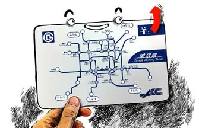 |
|
 |
|
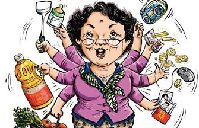 |
possible that many simply jumped at the conclusion from a glance at the title rather than reading through the entire piece. What it says is essentially true-albeit with an upbeat tone that can be either sarcastic or matter-of-fact.
If this is not caustic enough, there is another piece from a serious newspaper that suggests smog is good for national defense because hostile countries cannot accurately aim their warheads at targets inside China. So, you cannot accuse Chinese of lacking a sense of humor.
Satire is not something everyone is comfortable with, especially in a culture ruled by patriarchal condescension as the traditionally predominant voice. In the old days, satire was reserved for a few opinion leaders who wielded their mighty pen, figures like Lu Xun. There is a type of essay in Chinese literature called zawen, which tend to be acerbic and critical of social maladies.
For a while, crosstalk, a form of entertainment resembling stand-up comedy, flourished on social satire, but it has never evolved into television shows that could be the equivalent of Jon Stewart's Daily Show. The closest we have is Zhou Libo, a Shanghai-based comedian who repackages much of his material from online sources. There are simply not enough professional writers, it seems, who can reliably churn out high-quality jokes that send up daily events.
Fortunately, the Internet has created a platform where everyone can contribute their wisdom and very often the best output gets distributed to the largest readership. It's nearly impossible to trace the origin of a good joke, which may get revised and refined as it goes viral. I was asked by a publisher to edit a year-end best social commentary in 2008, and the Olympic song Beijing Welcomes You had so many satirical takes there could be a special chapter devoted to them.
But my publisher deleted all entries from the collection because she feared litigation from someone who claims to be the author. Now that I think about it, the absence of financial interests in creating social satire is a double-edged sword: It makes the effort pure, but it also removes the incentive for the best satirists to make a living out of it. The result is, out of a million who retweet a witty one-liner, not one may want to spend time and rack his or her brain to create an original one. Without a team of professionals, great satire appears either in ebb and flow or in hit and miss.
Sometimes, people can be funny without intending to be. A teenager persuades her younger sister to eat vegetables by saying: "Vegetables are the best remedy for smog." The 9-year-old said she would verify this claim online. So, the teenager pleaded for people to join her in the white lie. The last time I checked, some 8,000 people have left words that vegetables can be an antidote to poisonous smog.
Now, this is black humor, though unintentional.

 Ice storm leaves many without power in US, Canada
Ice storm leaves many without power in US, Canada
 'Chunyun' train tickets up for sale
'Chunyun' train tickets up for sale
 Abe's war shrine visit sparks protest
Abe's war shrine visit sparks protest
 LeBron James is AP's Male Athlete of the Year
LeBron James is AP's Male Athlete of the Year
 Year-end horse-ride parade California
Year-end horse-ride parade California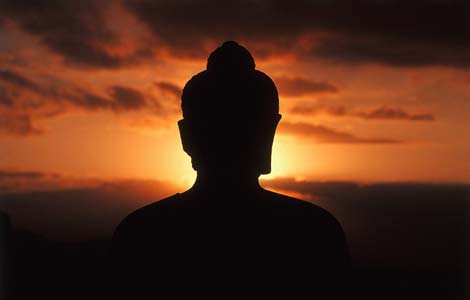
 Pick your new year sunrise
Pick your new year sunrise
 Memorial a big draw on Mao's birthday
Memorial a big draw on Mao's birthday
 China's urbanization rate to hit 60% by 2018
China's urbanization rate to hit 60% by 2018
Most Viewed
Editor's Picks

|

|

|

|

|

|
Today's Top News
China reports 12th vaccine-related death
China begins e-commerce legislation
Li drops in to help realize home dream
Govt issues holiday warning
US judge upholds NSA surveillance program
War shrine visit fury mounts
China's vaccines are safe: WHO
Chinese students in US buy luxury
US Weekly

|

|








